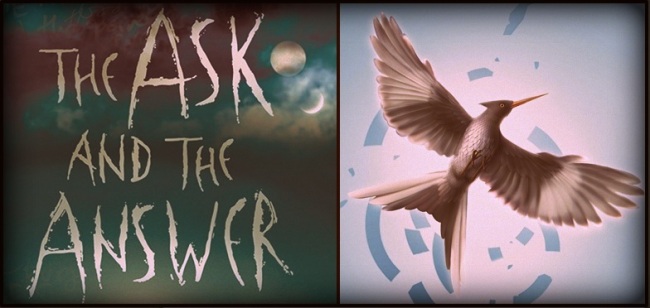I’m not exactly certain what genre of personality I manifested to the world as a 12-year-old. This was my third year of pointe shoes, fourth year of being Margaret’s (on-and-off again) best friend, and first year as a member of my Bible memorization club’s orange polo shirted regimen. I also remember being overwhelmingly overlooked by all pukka shell clad spiky hair preteen boys. Potentially I was as bland as they come but I was also homeschooled, a fact that today’s high society tells me is one of the most interesting pieces of trivia that pertain to me.
The following year, 2003, was when I found baseball. While I lack solid memories of specific days (not counting Barry Bonds’ birthday bash), I recall rhythms of rolling the dial on the obnoxious Gary Radnich show that blathered about baseball and boringness to the ostentatious and nationally syndicated Jim Rome Jungle while unstuffing the dishwasher, then nibbling on my lunch while adjusting the nobs between Rick Berry and Rod Brooks’ equally ego-maniacal absent opines, and finally, lying on my couch and hearing some auditory relief as the scratchy, self-serious Ralph Barbieri and silly Tom Tolbert bantered about all sorts of shallow minutia.
Unsurprisingly the highlight of my day were the Giants games. There were Jon Miller and Joe Angel, whose voices I confused so much as a kid, describing the wacky Bonds’ defensive shift, serving up astonishment about Marquis Grissom’s high level of play and rolling their eyes (proverbially) at Pedro Feliz’s lack of plate discipline. And then, because the Giants were electric and won 100 games that year, I always, always, always defied my sisters’ attempts to sleep and very softly turned on this garage sale-worthy clock radio where I could hear the dessert of my day, Larry Krueger, who began to teach me the art of having an opinion, even, and so much, towards the people, things, and times that you loved.
XX
The morning the Larry Krueger was fired I was sleeping on a futon in my own room, the same futons that had served as building blocks for decades of fort-construction in our family. I remember that Mallory came in to break the news to me on a morning around nine-o-clock when the sun was well in the sky. And I remember sobbing, right then and there, and knowing, so viscerally and emphatically, that an era in my baseball life had been over.
Loud-mouth Krueger was axed after Giants’ manager Felipe Alou attacked the radio show host’s comments that lambasted the sluggish team’s “brain-dead Caribbean players.” I firmly don’t believe KNBR terminated Krueger for making those comments. The fired him because of the station’s incestuous relationship (see their decision to move Damon Bruce OUT of SportsPhone 680 several years later) with the ball club and political decisions like that get made all the time.
XX
It’s such an odd and dangerous phenomena that when I like someone I’m willing to make excuses for bad and “unacceptable” behavior. I had so much trouble as a 15-year-old (who’d actually mustered up the guts to phone Krueger’s show the year) in stepping back from the situation to ascertain the validity of Alou’s allegations that Krueger’s words were racist. Indeed, I barely cared. I wanted Larry back. I needed Larry back. And Alou took Larry away and my comfort zone of brash, pompous, and cynical opinions about the Giants away, “tough love” during what was a tough stretch for the Giants away, and all I wanted was it back.
This was my radio damnit. My team. My right.
Eight years later. Eight years later boys and girls. Eight years later. And last Friday, Damon Bruce, who possess positively close to zero shame for anything that’s ever come out of his mouth, gave one of his most audacious tirades. Several examples follow.
“I know how professional sports works…But very few small handful of women who are very good at this at all.”
“Message for all the women, all the guidance counselors, the sensitive males . . . all of this world of sports, especially the world of football, has a setting. It’s set to men. Women, ladies, sensitive guys, you can observe, be offended, report on it all. But we’re not changing it for you.”
So much chewy analysis has already been written on Bruce’s words whether it’s women who are eager to provide themselves as evidence against Bruce’s claims or pundits calling out broadcaster for being misogynist.
I, for one, believe that women’s foray into the professional and collegiate sports arena has obviously changed the world–whether from a perception or implementation level. While Bruce, as a male, may see his world intruded upon by people who may actually call out his kingdom about its propensity towards boorish, vicious, sexist and juvenile behavior, I welcome them.
And for those, too, who have alleged that women reporters are just as competent as men, I don’t feel that that these critics are actually understanding Bruce’s point. It’s not that these women are lousy at being journalists; it’s that their mere presence challenges all of those tiny little assumptions we make about injuries, contracts, salaries, rivalries, clubhouses, offensive lines, defensive lines, bullpens, starting five’s, locker rooms, huddles, and high-fives. The vast majority of sports that female broadcasters will cover, their gender will at be primarily represented by dance and cheer squads. Rarely will they cover sports where women are the athletes.
Since becoming a sports fan, I haven’t heard an intellectual argument about why sports are so unapologetically divided among gender lines and I’m not here to make one today. I’m only here to say that there is an elephant in the room when half the world’s population will enter a territory previously completely taken over at the ownership, media and player level by one half and then watch it slowly, slowly, cede to more and more, though little by little, to some in that other half.
Regardless of whether the questions they’ve posed inside the locker room are ones that have sought a revolution, or even a reformation, they’ve made men self-conscious of their culture, of its boorish, vicious, sexist and juvenile behavior, and isn’t self-awareness where change catalyzes?
That Damon Bruce linked women to the Ricky Incognito / Jonathon Martin bullying story makes total sense; Martin’s revelations opened up an entire new realm of places for the media (read: those who may have an interest in undermining sports’ status quo) to butt their heads into and critique.
XX
Several years after Larry Krueger was fired and the Razor and Mr. T had been my daily radio pinnacle, Damon Bruce came on the air. Raunchy, never shy about the occasional (and there were plenty) innuendo, and brash, I wasn’t sure always sure how I felt about his style, especially its blatant sexualness, but I loved how Bruce would just dive headfirst into having an opinion.
I’d love Larry and it’d been so long. And Bruce’s passion…
There were also times where as a female listener, I felt totally uncomfortable listening to the show. After Bruce’s fiancé broke of their engagement in 2009 (?), what had been a time when I had felt him truly warm up to females and express genuine excitement about getting married, he would go on subliminal and not so subliminal misogynistic streaks. Damon, I did not need you to gush about this Warrior Girls’ body or start your Nooner segment or make some snide remark about an attractive woman every half hour. Sundress conditions? If only you just left it at that.
Also, posing with scantily clad women on Twitter. Give me a break.
An email that I wrote him at the beginning of this year:
Damon, I’ve been listening since I was teenager and two things. When you say you go out of the box, you really mean it in so many good ways…
That said, it can also be an uncomfortable experience being a female fan and Twitter follower at times. For instances, I felt your Williams’ sisters tweets yesterday detracted from the fact that currently Serena is playing at an elite level and who has a great opportunity to win the Australian Open. But grand slam tennis though usually doesn’t get more attention than a Nooner, if that, so it frustrated me that she was mentioned for a iPhone commercial but not for her current performance. While I try to ignore your Warrior girl comments (by telling myself that they’re paid for their sex appeal,) I felt the Williams sisters deserved better. I do wonder, at times, what a woman must do for you to respect her.
I’m not interested in unfollowing you or not listening to the show–most of the times I love your commentary and tell it like it is attitude. I live in New York City now and yours is the only KNBR show that I still listen to.
Because, as a 23-year-old, who only semi-occasionally plays a Damon Bruce podcast to go to bed to at night, when all of things toxic utterances vomited out of his mouth last week, I did not want to take all my passions and convictions about women and hurl them on him. I did not want to push for his firing.* I did not want him off the air. I did not want to think of another Giants season without a critic and truthsayer and headscratcher.
I thought of Damon playing Martin Luther King’s “I have a dream speech” annually and his unparalleled exposé on the Penn State sexual abuse scandal and his creative ways to engage callers. Yeah, sure, I guess, that should all work towards penance.
But let’s get to the heart of this. It’s not what this incident has said about Bruce. I already knew it.
At the end of the show, Bruce always reminds us that “Sports don’t build character; they reveal it.”
And in my life, “Crisis don’t bolster standards; they expose my lack of them.”
*(Really, I don’t think it would have been a bad decision to let it go. Like I said, he’s really not been a woman’s best friend since he joined KNBR. I’ve never felt any similar vibes from any other KNBR show host, with the possible exception of the not-so-recently departed Barbieri.)

